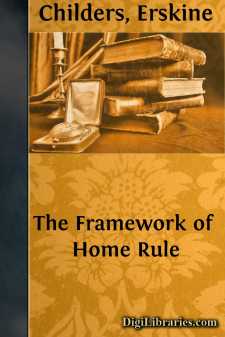Categories
- Antiques & Collectibles 13
- Architecture 36
- Art 48
- Bibles 22
- Biography & Autobiography 813
- Body, Mind & Spirit 142
- Business & Economics 28
- Children's Books 17
- Children's Fiction 14
- Computers 4
- Cooking 94
- Crafts & Hobbies 4
- Drama 346
- Education 46
- Family & Relationships 57
- Fiction 11829
- Games 19
- Gardening 17
- Health & Fitness 34
- History 1377
- House & Home 1
- Humor 147
- Juvenile Fiction 1873
- Juvenile Nonfiction 202
- Language Arts & Disciplines 88
- Law 16
- Literary Collections 686
- Literary Criticism 179
- Mathematics 13
- Medical 41
- Music 40
- Nature 179
- Non-Classifiable 1768
- Performing Arts 7
- Periodicals 1453
- Philosophy 64
- Photography 2
- Poetry 896
- Political Science 203
- Psychology 42
- Reference 154
- Religion 513
- Science 126
- Self-Help 84
- Social Science 81
- Sports & Recreation 34
- Study Aids 3
- Technology & Engineering 59
- Transportation 23
- Travel 463
- True Crime 29
The Riddle of the Sands
by: Erskine Childers
Categories:
Description:
Excerpt
I HAVE read of men who, when forced by their calling to live for long periods in utter solitude—save for a few black faces—have made it a rule to dress regularly for dinner in order to maintain their self-respect and prevent a relapse into barbarism. It was in some such spirit, with an added touch of self-consciousness, that, at seven o'clock in the evening of 23rd September in a recent year, I was making my evening toilet in my chambers in Pall Mall. I thought the date and the place justified the parallel; to my advantage even; for the obscure Burmese administrator might well be a man of blunted sensibilities and coarse fibre, and at least he is alone with nature, while I—well, a young man of condition and fashion, who knows the right people, belongs to the right clubs, has a safe, possibly a brilliant, future in the Foreign Office—may be excused for a sense of complacent martyrdom, when, with his keen appreciation of the social calendar, he is doomed to the outer solitude of London in September. I say 'martyrdom', but in fact the case was infinitely worse. For to feel oneself a martyr, as everybody knows, is a pleasurable thing, and the true tragedy of my position was that I had passed that stage. I had enjoyed what sweets it had to offer in ever dwindling degree since the middle of August, when ties were still fresh and sympathy abundant. I had been conscious that I was missed at Morven Lodge party. Lady Ashleigh herself had said so in the kindest possible manner, when she wrote to acknowledge the letter in which I explained, with an effectively austere reserve of language, that circumstances compelled me to remain at my office. 'We know how busy you must be just now', she wrote, 'and I do hope you won't overwork; we shall all miss you very much.' Friend after friend 'got away' to sport and fresh air, with promises to write and chaffing condolences, and as each deserted the sinking ship, I took a grim delight in my misery, positively almost enjoying the first week or two after my world had been finally dissipated to the four bracing winds of heaven.
I began to take a spurious interest in the remaining five millions, and wrote several clever letters in a vein of cheap satire, indirectly suggesting the pathos of my position, but indicating that I was broad-minded enough to find intellectual entertainment in the scenes, persons, and habits of London in the dead season. I even did rational things at the instigation of others. For, though I should have liked total isolation best, I, of course, found that there was a sediment of unfortunates like myself, who, unlike me, viewed the situation in a most prosaic light. There were river excursions, and so on, after office-hours; but I dislike the river at any time for its noisy vulgarity, and most of all at this season. So I dropped out of the fresh air brigade and declined H—'s offer to share a riverside cottage and run up to town in the mornings. I did spend one or two week-ends with the Catesbys in Kent; but I was not inconsolable when they let their house and went abroad, for I found that such partial compensations did not suit me. Neither did the taste for satirical observation last. A passing thirst, which I dare say many have shared, for adventures of the fascinating kind described in the New Arabian Nights led me on a few evenings into some shady haunts in Soho and farther eastward; but was finally quenched one sultry Saturday night after an hour's immersion in the reeking atmosphere of a low music-hall in Ratcliffe Highway, where I sat next a portly female who suffered from the heat, and at frequent intervals refreshed herself and an infant from a bottle of tepid stout.
By the first week in September I had abandoned all palliatives, and had settled into the dismal but dignified routine of office, club, and chambers. And now came the most cruel trial, for the hideous truth dawned on me that the world I found so indispensable could after all dispense with me. It was all very well for Lady Ashleigh to assure me that I was deeply missed; but a letter from F—, who was one of the party, written 'in haste, just starting to shoot', and coming as a tardy reply to one of my cleverest, made me aware that the house party had suffered little from my absence, and that few sighs were wasted on me, even in the quarter which I had assumed to have been discreetly alluded to by the underlined all in Lady Ashleigh's 'we shall all miss you'. A thrust which smarted more, if it bit less deeply, came from my cousin Nesta, who wrote: 'It's horrid for you to have to be baking in London now; but, after all, it must be a great pleasure to you' (malicious little wretch!) 'to have such interesting and important work to do.' Here was a nemesis for an innocent illusion I had been accustomed to foster in the minds of my relations and acquaintances, especially in the breasts of the trustful and admiring maidens whom I had taken down to dinner in the last two seasons; a fiction which I had almost reached the point of believing in myself. For the plain truth was that my work was neither interesting nor important, and consisted chiefly at present in smoking cigarettes, in saying that Mr So-and-So was away and would be back about 1st October, in being absent for lunch from twelve till two, and in my spare moments making précis of—let us say—the less confidential consular reports, and squeezing the results into cast-iron schedules....




